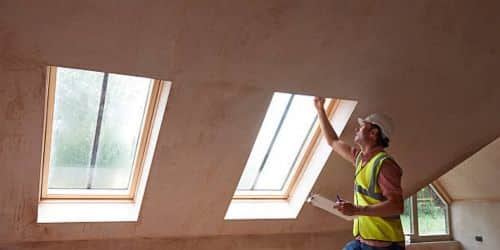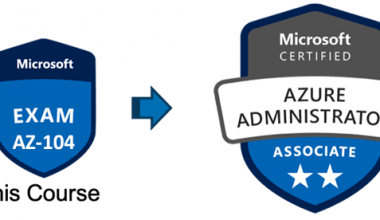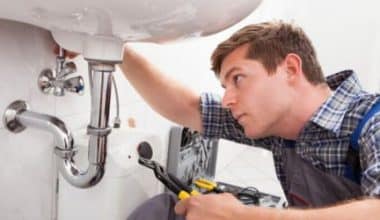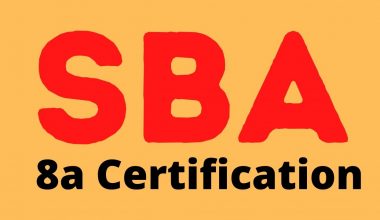A home inspection is an evaluation of the current state of a house. A home inspector usually carries it out. For a home inspector to carry out an inspection, he needs to have an inspection certification. A home inspector’s certification shows the inspector is approved for his work and has undergone the necessary training and courses. The process of getting a home inspector certification usually varies by state, so look into how to get a certification in California, Florida, and Georgia, its benefits, and certification programs, both online and in person.
Home Inspector Certification
Home inspector certification confirms that a home inspector is trained and qualified to perform home inspection checks. Hence, obtaining it allows individuals to become qualified and recognised as professional home inspectors. However, home inspector certification requirements and processes vary by state or region.
Importance of Home Inspector Certification
Obtaining a home inspector certification is important for several reasons:
#1. Professionalism and Credibility
Certification demonstrates that a home inspector has completed the necessary training and education to perform inspections competently. Thus, assuring clients that the inspector has the knowledge and skills to assess a home accurately. Certification adds credibility to the inspector’s qualifications and can help build client trust.
#2. Compliance with State Requirements
Many states have specific requirements for home inspectors, including mandatory certification or licensing. By obtaining certification, home inspectors can ensure they meet the legal requirements in their state and can legally practice as home inspectors. This helps avoid potential legal issues and penalties.
#3. Career Advancement and Opportunities
Certification can open up new career opportunities for home inspectors. Many clients, such as real estate agencies and home buyers, prefer to work with certified inspectors. Certification can enhance a home inspector’s reputation and increase their chances of being hired for inspections. It can also provide a competitive edge in the industry and lead to higher earning potential.
#4. Continuing Education and Professional Development
Home inspector certification often requires ongoing education and professional development. This ensures that certified inspectors stay updated with industry standards, regulations, and best practices. Continuing education helps inspectors maintain their skills and knowledge, providing clients with high-quality and up-to-date inspection services.
#5. Access to Resources and Support
Certification programs often provide access to valuable resources and support networks for home inspectors. These resources can include industry-specific tools, templates, and inspection guidelines. Additionally, certified inspectors may have access to professional forums, networking events, and mentorship programs, which can help them learn from experienced inspectors and stay connected with peers in the industry.
Types of Home Inspector Certification Programs
There are several types of home inspector certification programs available. They include the following:
#1. InterNACHI Certified Professional Inspector Program
InterNACHI is a notable professional organisation for home inspectors that offers online courses covering a wide range of home inspection topics. They also provide state-specific continuing education courses. However, InterNACHI’s program is only accepted in some states, so it’s important to check if it is recognised in your state
#2. McKissock Learning
McKissock Learning offers continuing education programs for home inspectors. They provide online classes that can be customised based on individual needs. Professional organisations like InterNACHI, ASHI, and CREIA have approved McKissock’s classes. However, their classes are only available in some states, so it’s important to check if they offer courses in your state.
#3. Inspection Certification Associates (ICA)
Many state agencies have approved ICA’s self-paced online home inspection training course. They also offer classroom-based courses for those who prefer a live classroom setting. ICA’s course is tailored for individuals who want to become licensed home inspectors and need licensing education.
#4. American Home Inspectors Training (AHIT)
The Mbition Education Company owns AHIT, a reputable online home inspection school. They offer online home inspection training courses for every state in the United States. AHIT provides new license packages, continuing education, exam preparation, and individual certification courses. Most states in the nation have approved AHIT.
#5. State-Specific Programs
Some states have their own approved home inspection training programs. For example, in Alabama, the Alabama Division of Construction Management has approved schools such as AHIT, The ASHI School, and ICA for new licensing. It’s important to check your state’s specific requirements and approved programs.
Factors to Consider When Choosing a Home Inspector Certification Program
Factors to consider include the following:
- Certifications vs Licensing: State licensing requirements vary, and some states may not require a license for home inspectors. However, obtaining licensure or certifications can positively impact your reputation and earning potential. Certifications from reputable programs can demonstrate to clients and hiring entities that you are qualified to inspect homes.
- State restrictions: States may limit home inspector certification courses, requiring in-person training in some cases. Researching requirements is crucial for selecting suitable programs.
- State licenses: Home inspector license requirements vary, with some states requiring minimum classroom hours and exams or no license at all.
- Course offerings: When narrowing down the list of home inspector training programs, consider the following key features:
- Course price and included components
- Available course formats and lengths
- Eligible states for certification
- Levels of student support offered
- Certifications earned upon completion of the program
- Course curriculum: Look for a program that offers comprehensive training on all aspects of home inspection. The program should cover proper inspection techniques, identify problems, and create official inspection reports.
- Reputation and accreditation: Research the reputation and accreditation of the certification program. Look for programs that have the support of reputable industry organisations.
- Continuing education: Consider whether the program offers continuing education courses to help you stay current on home inspection developments and licensing requirements.
- Insurance requirements: Some states require home inspectors to have insurance, such as General Liability Insurance and Errors and Omissions (E&O) Insurance..
Georgia Home Inspector Certification
Georgia is a non-regulated state regarding home inspector licensing, which means there are no official requirements. However, certification can still demonstrate your qualifications and professionalism to potential clients. To become a certified home inspector in Georgia, prospective home inspectors typically need to complete a state-approved training program, log a certain number of hours performing field inspections, and pass the state licensing exam. The Georgia Association of Home Inspectors (GAHI) and the Georgia Board of Professional Home Inspectors are responsible for setting these requirements.
Benefits of Obtaining a Home Inspection Certification in Georgia
- Commercial property inspections: With a home inspection certification, you may also be able to perform commercial property inspections. This can expand your client base and increase your earning potential.
- Job opportunities and income potential: Becoming a certified home inspector in Georgia can provide you with job opportunities and the potential to earn a high salary.
- Public adjuster option: Besides home inspections, obtaining a certification in Georgia can open opportunities to become a public adjuster. Public adjusters adjust insurance claims for homeowners, commercial property owners, and businesses. This can be an additional source of income or a potential career path.
California Home Inspector Certification
The California Bureau of Real Estate Appraisers (BREA) oversees the certification process for home inspectors in California. To get certified as a home inspector in California, candidates must normally complete a training program that the state has recognised, amass a certain amount of on-the-job experience, and pass the California Home Inspector Examination.
Benefits of Obtaining a Home Inspection Certification in California
Obtaining a home inspection certification in California has several benefits, including:
- Increased credibility: Most home buyers and realtors prefer to hire certified home inspectors. Being certified demonstrates that you have undergone proper training and have met certain standards of competence and professionalism.
- Expanded job opportunities: Many home buyers and realtors limit their search to certified home inspectors. By obtaining a certification, you can increase your chances of being hired and expand your client base.
- Compliance with state regulations: Although a license is not necessary to become a home inspector in California, the state does regulate the home inspection profession. Obtaining a certification ensures that you are compliant with state regulations and requirements.
- Enhanced professional network: Joining a professional home inspector association, such as the California Real Estate Inspection Association (CREIA), can provide networking opportunities and support for your career. It can also help you stay informed about industry updates and best practices.
Home Inspector Certification Florida
The Department of Business and Professional Regulation (DBPR) in Florida oversees certification to work as a home inspector. To get certified as home inspectors in Florida, they must fulfil particular education and experience requirements, pass a state examination, and submit an application to the DBPR.
Benefits of Obtaining a Home Inspection Certification in Florida
Obtaining a home inspection certification in Florida has several benefits:
- Meeting the legal requirements: In Florida, the Florida Department of Business and Professional Regulation (DBPR) is responsible for licensing and regulating home inspectors. By obtaining a home inspection certification, you ensure you meet the legal requirements to conduct home inspections in the state.
- Access to education and training: Obtaining a home inspection certification in Florida often involves completing a comprehensive training program. This training equips you with the necessary skills and knowledge to perform home inspections effectively and accurately.
- Networking opportunities: Some certification programs or associations offer membership benefits, such as networking opportunities with other professionals in the industry. This can help you build connections, learn from experienced inspectors, and stay updated on industry trends.
Online Home Inspector Certification
The demand for online home inspector training and certification programs has grown, offering convenience and versatility. These home inspector certification programs provide extensive training and education via online platforms, allowing students to study at their own pace and in their comfort, making them ideal for those with busy or conflicting schedules.
Online Home Inspector Certification Providers
They include:
- The All-American Training Institute (ATI)
- Professional Home Inspection Institute (PHII)
- U.S. Career Institute
- American Society of Home Inspectors (ASHI)
- International Association of Certified Home Inspectors (InterNACHI)
- National Association of Home Inspectors (NAHI)
Why Pursuing Online Home Inspector Certification is a Good Choice:
- Convenience and Flexibility: Pursuing online home inspector certification allows you to study at your own pace and from the convenience of your home.
- Cost-Effective: Online home inspector certification courses are often more affordable than in-person classroom courses. They generally have lower tuition fees.
- Comprehensive Course Materials: Online home inspector courses typically provide a wide range of resources, including video lectures, instructional videos, technical illustrations, and practice materials.
- Access to Support and Networking: Many online home inspector courses offer support from academic advisors and student services. Some also provide opportunities for networking and collaboration with fellow students.
- Continuing Education Opportunities: Online home inspector courses provide continuing education for certification, updating, and professional development and meet state-specific requirements.
How Do I Become a Licensed Home Inspector?
To obtain a license as a home inspector, you will need to complete a series of stages unique to your state’s regulations. The following is a summary of the process in general:
- Research the state’s standards. The education, training, and experience levels required by home inspectors vary greatly from state to state. You might be required to complete anywhere from 60 to 140 hours of training in addition to passing a certification test.
- Take courses. You must finish a set number of pre-licensing courses to become licensed in many states. These courses may be found via organisations such as ATI, and you will receive inspection certification as proof you have received the knowledge and abilities necessary for the job.
- Take and pass a national examination. To become a home inspector in some states, you must pass either the National Home Inspection Exam (NHIE) or a state-specific examination.
- Acquire training on the job. In many states, you must complete training on the job, which must be done under the supervision of an experienced inspector.
- Obtain the necessary insurance. You must carry errors, omissions, and general liability insurance in some areas. You may also be required to have a minimum of $250,000 worth of errors and omissions insurance.
How Much Does a Home Inspector Make?
Several elements influence a house inspector’s income, including their location, level of expertise, and whether or not they are self-employed or work for an organisation. The typical yearly pay for a house inspector in the United States is $78,900, which equates to an hourly wage of $37.93. Home inspectors who work on their own might expect an annual salary that falls somewhere between $50,000 and $70,000 on average.
Do You Need a License to Be a Home Inspector in New York?
In New York, yes, you need a house inspector’s license. However, you must do the following to get a license to be a home inspector:
- Pass 100 hours of approved classroom training before you can get your license.
- Do 40 hours of unpaid inspection work directly under the guidance of a licensed New York inspector.
- Have general liability insurance for $150,000 per event and $500,000.
- Send the Department of State a fully filled-out application and the fee.
- Have passed the National Home Inspector exam
- Home inspectors must also finish 24 hours of approved continuing education before their license expires every two years.
What State Do Home Inspectors Make the Most Money?
The state of California is the one with the highest compensation for home inspectors. The state’s average salary for home inspectors is $86,660. However, it is essential to remember that pay can vary substantially based on factors like the inspector’s experience level, location, and employment status.
What Does a Home Inspector Look For?
Home inspectors look for various issues in a house to ensure the safety and functionality of the property. They check for structural, electrical, plumbing, and mechanical problems and potential safety hazards. What they look for includes:
- Grounds: Inspectors check for water issues, faulty grading or downspouts, landscaping condition, pathways, retaining walls, sheds, and railings.
- Structure: The foundation, walls, windows, doors, and frames are examined for defects. This is particularly important for older houses.
- Roof: Inspectors look for roofing material defects, attic shingles, flashing, fascia, and chimney issues.
- Exterior: Inspectors assess siding, trim, and paint for defects or decay. They also check for cracking or flaking masonry, stucco issues, and clearance between siding and earth.
- Windows, doors, and trim: Inspectors ensure that windows and doors are secure, caulking is solid and secure, and glass is undamaged.
- Interior rooms: inspectors check for leaning walls, stained ceilings, adequate insulation, and sufficient heating vents.
- Walls, Ceilings, and Floors: Inspectors look for discolouration, mould, water damage, sagging ceilings, cracks, and other structural damage in walls.
- Plumbing: Inspectors examine faucets, showers, visible leaks, water pressure, and pipes. They may recommend a secondary inspection if the pipes are old.
- Electrical: Inspectors assess the electrical panel, wiring, and outlets for defects or safety issues.
How Long Does It Take To Get a Home Inspector License?
Many states require passing a license test and completing 60 to 140 hours of education. Sometimes, becoming a certified house inspector may take a few days. Still, it could take up to three months to receive the appropriate instruction and gain hands-on experience to launch your business. InterNACHI offers a 149-hour general pre-licensing program.
Related Articles
- COST OF HOME INSPECTION: Average Inspection Costs In The United States
- HOW TO BECOME A HOME INSPECTOR: Step-By-Step Guide
- HVAC CERTIFICATION: Step-To-Step Guide to Get HVAC Certified
- How to Get Alabama Real Estate License: Step-By-Step Guide






